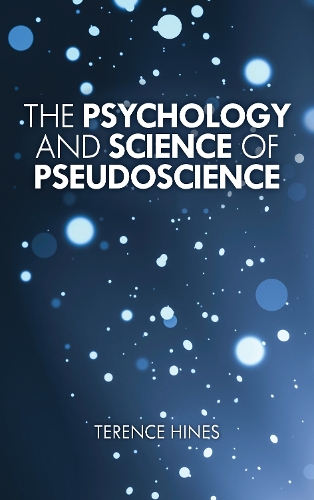
The Psychology and Science of Pseudoscience
(Paperback)
Available Formats
Publishing Details
The Psychology and Science of Pseudoscience
By (Author) Terence Hines
Bloomsbury Publishing PLC
Rowman & Littlefield Publishers
18th March 2025
United States
Classifications
General
Non Fiction
Abnormal psychology
Cognition and cognitive psychology
Mind, body, spirit
Social, group or collective psychology
Popular beliefs
500.19
Physical Properties
Paperback
434
Width 178mm, Height 254mm
658g
Description
This book provides a comprehensive review of numerous areas of pseudoscience and related pathological science. It not only describes the factual bases for rejecting pseudoscientific claims, but also emphasizes the psychological processes that lead to the acceptance of such claims. This book is timely, given the increase in misinformation over the past decade.
Using three principles of cognitive psychology, this book helps explain why people are hard-wired to accept and continue to believe in pseudoscientific claims. It provides up-to-date discussions of numerous paranormal and pseudoscientific topics, including the usual suspectsUFOs and alien abductions, astrology, cryptozoology, and morebut also belief in conspiracy theories, laboratory parapsychology, bogus forensic science techniques, the pseudopsychologies of Freud, medical fraud, and the unethical practices of Big Pharma. Older research that was foundational in the critical examination of several topics is woven throughout to situate them in a historical context.
Reviews
Terence Hines is one of the worlds foremost authorities on the science of pseudoscience. Hes also a hero of mine. Like his engaging contributions to Skeptical Inquirer magazine, I learned so much from this book, and I believe all readers will benefit from thinking about whats believable (and whats unbelievable) using key principles of cognitive psychology. From historical hogwash to modern malarkey, Hines superbly helps sifts through the silliness toward a better understanding of the human mind. * Stephen Hupp, Editor, Skeptical Inquirer: The Magazine for Science and Reason *
Author Bio
Terence Hines has been professor of Psychology at Pace University since 1981 and is adjunct professor of Neurology at New York Medical College. After graduate school he had a one-year post-doctorate position at the Boston Veterans Administration studying the cognitive effects of normal aging. Following that he moved to the Neurology Department of the Cornell University Medical School for two years, doing research on split brain individuals and Parkinsons disease. His major research interests include bilingual memory, representation of number in memory, and the causes of belief in things paranormal.
